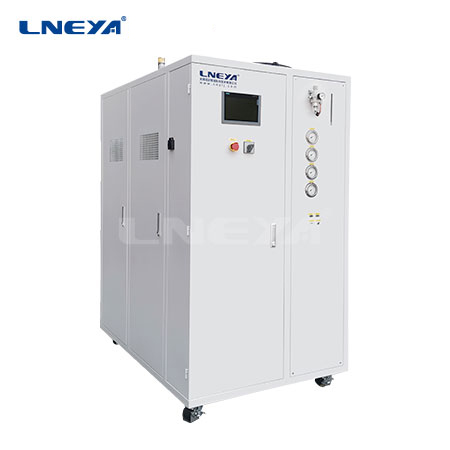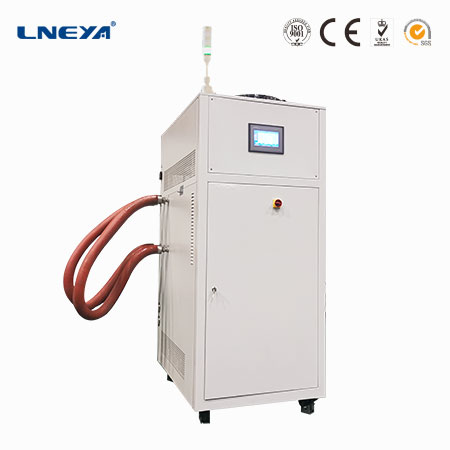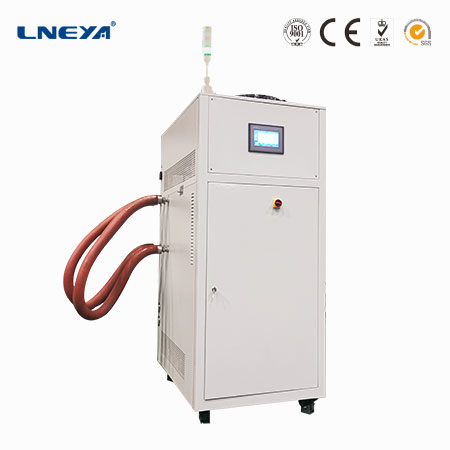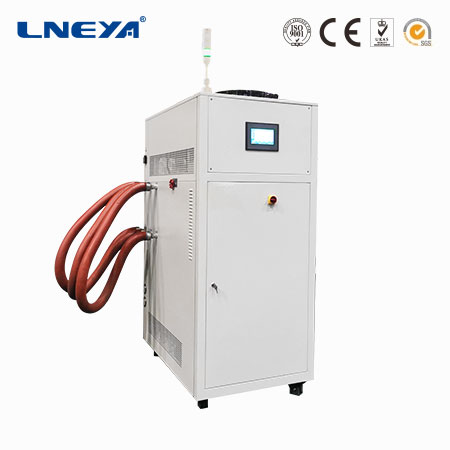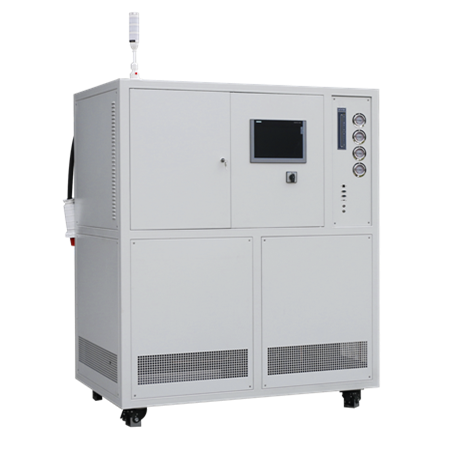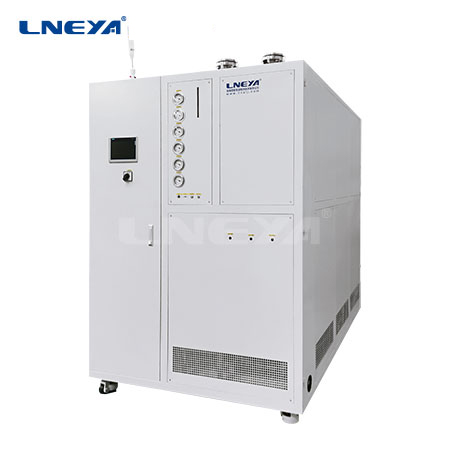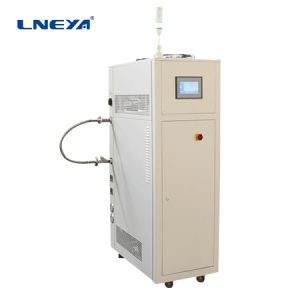Do new energy vehicle motor tests require a chiller or heater?
New energy vehicle motor testing requires both a chiller and a heater, as motor testing covers a wide range of temperature conditions to ensure the performance and stability of the motor under different operating conditions.
Chiller: In high load operation of the motor or high ambient temperature, the motor and its controller will generate a large amount of heat. The chiller absorbs and takes away this heat by circulating coolant, helping to maintain the motor temperature within a controllable range and avoiding performance degradation or damage caused by overheating. The chiller ensures temperature management during the testing process, especially during full load testing, efficiency testing, or durability testing, to simulate the cooling needs of the motor in actual use.
Heater: In low-temperature environments or when cold start testing is required, the motor may face difficulties in starting or performance limitations. At this point, the heater becomes particularly important as it can quickly heat the coolant or test the environment, simulate the working state in a low-temperature environment, test the low-temperature starting performance, low-temperature warming performance of the motor, and work efficiency in cold climates.
Therefore, new energy vehicle motor testing is usually equipped with a cold and hot integrated machine or separately equipped with a chiller and heater to achieve comprehensive temperature control of the motor, meet the testing requirements in various ranges from low temperature to high temperature, and ensure that the motor can operate stably and reliably throughout the entire temperature range. This can not only verify the heat dissipation ability of the motor under high temperature conditions, but also test its starting and operating performance under low temperature conditions.
Low Temperature Chiller Heater
- MORE
KRY -40℃~+100℃ (1to6)
The components are cooled and heated internally through ethylene glycol aqueous solution for testing -40 ° C~100 ° C (expandable to 150 ° C) For the power battery charging management, the precision …
- MORE
KRY -40℃~+100℃ (1to1)
Refrigeration, heating, temperature control, flow control Connect the tested object to a testing platform adapterThe components are cooled and heated internally through ethylene glycol aqueous solution for testing. …
- MORE
KRY -40℃~+100℃ (1to2)
Temperature range is -40℃~+100℃, which can be extended to +135℃ according to the actual situation, and the temperature control accuracy is plus or minus 0.5℃. Theequipment can control the flow and pressure independently while c…
- MORE
KRY -40℃~+100℃ (1to3)
Dimension(A) cm Temperature range is -40℃~+100℃, which can be extended to +135℃ according to the actual situation, and the temperature control accuracy is plus or minus 0.5℃. Theequipment can control the flow and…
loading…
已经是到最后一篇内容了!
Normal Temperature Chiller Heater
- MORE
KRY 0℃~+100℃ (1to2)
Temperature range is 0℃~+100℃, which can be extended to +135℃ according to the actual situation, and the temperature control accuracy is plus or minus 0.5℃. The equipment can control the flow and pressure independently …
- MORE
KRY 0℃~+100℃ (1to3)
Test temperature of main test items of vehicle electronics: IC test conditions for locomotives: -40℃~125℃, wind blowing, sun exposure, high vibration; Instrument panel operation te…
- MORE
KRY 0℃~+100℃(1&6)
Temperature simulation for vehicle quality test: battery life test, fuel injector/motor test bench, airbag test, component test bench, etc. It can simulate the external environmental conditions in the climat…
- MORE
KRY 0℃~+100℃ (1to1)
Temperature range is 0℃~+100℃, which can be extended to +135℃ according to the actual situation, and the temperature control accuracy is plus or minus 0.5℃. The equipment can control the flow and pressure independently whil…
loading…
已经是到最后一篇内容了!
Related recommendations
-
What should you pay attention to when installing a DC charging pile cooling system?
336pay attention to when installing a DC charging pile cooling system
View details -
Simulation analysis and result analysis of battery pack thermal management
359battery pack thermal management simulation analysis
View details -
KRY -40℃~+100℃ (1to2)
1010Temperature range is -40℃~+100℃, which can be extended to +135℃ according to the actual situation, and the temperature control accuracy is plus or minus 0.5℃. Theequipment can control the flow and pressure independently while c...
View details -
KRY -25℃~+100℃
821Temperature range is -25℃~+100℃, which can be extended to +135℃ according to the actual situation, and the temperature control accuracy is plus or minus 0.5℃. The equipment can control the flow and pressure independently w...
View details
 LNEYA Industrial Chillers Manufacturer Supplier -
LNEYA Industrial Chillers Manufacturer Supplier -










